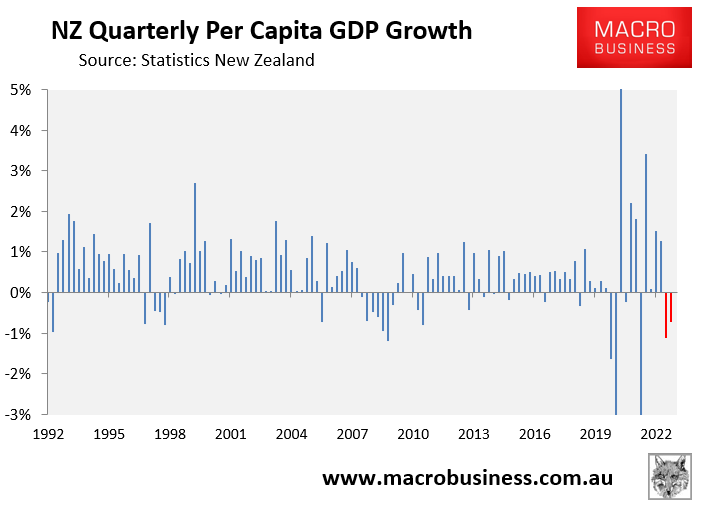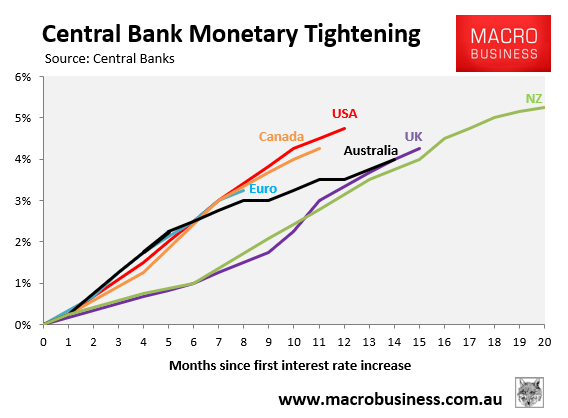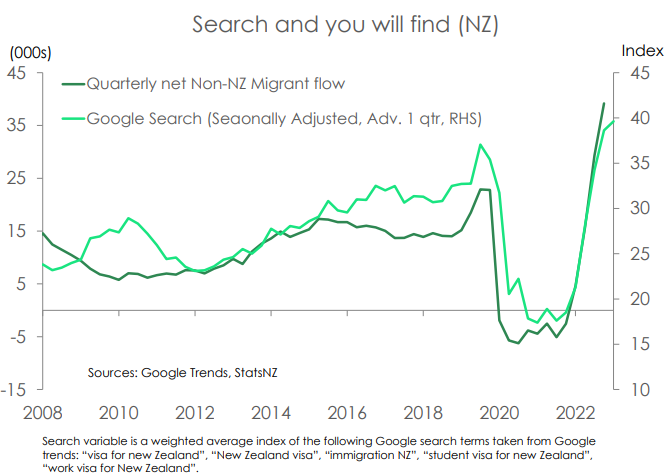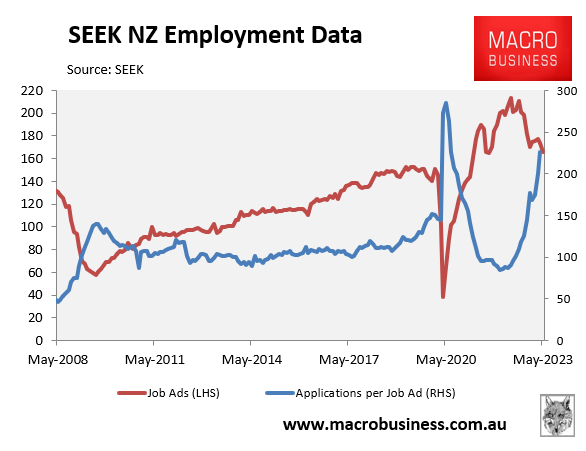Last week, Statistics New Zealand reported that the economy had entered a ‘technical recession’, with two consecutive quarters negative GDP growth recorded over the December and March quarters.
The result was even worse when accounting for population growth, with New Zealand’s per capita GDP plunging 1.1% in the December quarter and a further 0.7% over the March quarter (see red bars in the below chart):

These results are obviously backward looking as they are only current to end-March.
Since then, the Reserve Bank has lifted the official cash rate another two times (a cumulative 0.5%) to 5.50%, representing the most aggressive central bank monetary tightening in the English-speaking world:

Like in Australia, New Zealand is currently experiencing a strong immigration-driven population boom, with net overseas migration running at unprecedented levels:

Thus, the Reserve Bank is aggressively tightening monetary policy into rapidly expanding labour supply – a recipe for rising unemployment.
Not only is this rapid population increase driving per capita GDP deeply into the red, but it has sent SEEK’s applications per job ads series into the stratosphere.
As shown in the next chart, SEEK job ads have fallen 22% from their May 2022 peak.
However, because labour supply is growing so strongly via mass immigration, the number of applications per job ad has risen 168% from its January 2022 low and is now tracking 89% above the same month in 2019 before the pandemic:

Not only has the Reserve Bank’s ultra aggressive monetary tightening driven New Zealand’s economy into recession.
It is also now decimating the labour market by flooding it with migrant workers at the same time as labour demand is falling.

